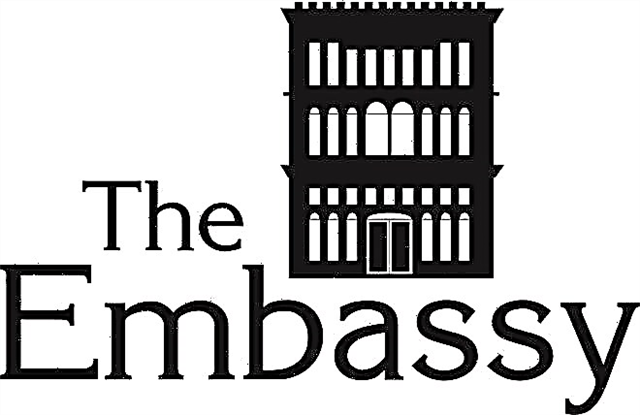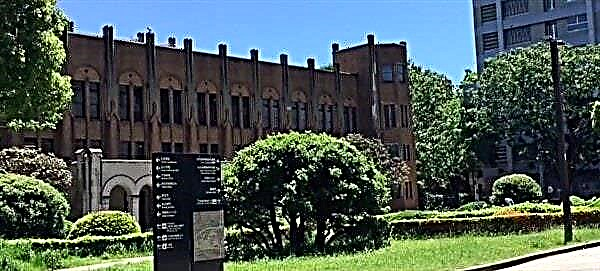For all persons of Jewish nationality, repatriation to Israel is a welcome and long-awaited event. And this is caused not only by the desire for a better standard of living, especially for citizens of the CIS countries. Alia, as Jewish repatriation is also called, is one of the foundations of Zionism: the return to the sacred land for the Jews is one of the biblical covenants. The history of immigration to Israel knows at least several return waves in modern history. On what conditions does aliyah operate today, what rules and methods of repatriation are provided for?

General information about Jewish repatriation
Let's immediately figure out what repatriation to Israel is - it is the return of persons of Jewish nationality to the historical homeland of their ancestors - to the State of Israel. Alia, as we have already said, is a biblical covenant for the Jews, has been practiced since the Old Testament times and has a thousand-year history.
But it acquired a mass character since the 12th century, when the Muslim and Christian churches began to persecute Jews around the world. As a result of centuries of persecution of Jews, Aliyah to Israel (until 1948 - the Land of Israel) acquired the scale of a real pilgrimage to the Holy Land, and the land itself became a haven for those who fled from pogroms and persecution.
Since the proclamation of the Declaration of Independence of the State of Israel in 1948, the country has actually opened its doors to Jews around the world. It was proclaimed that "The state will be open for the repatriation of Jews and for the gathering of diasporas."
The return to Israel of persons of Jewish nationality became part of the state policy of the newly created country. Since then, the Israeli authorities have carried out many operations to rescue the representatives of the Jewish people and take them to Israeli territory, have opened many repatriation programs, charitable foundations, and still continue to do everything to make the resettlement of Jews to Israel as comfortable and painless as possible. The country even created the Ministry of Aliyah and Integration.
For new immigrants who have been living in the country for less than 15 years, a special status of "ole hadash" is provided, which provides for many state benefits, subsidies and benefits that simplify adaptation in the new conditions.
There are about 6.5 million Jews in the country, and the overwhelming majority of them came under the repatriation program, or they are children of immigrants in Israel, at least 2 million of whom are descendants of immigrants in the first generation. All this suggests that the most massive Jewish repatriation has already become in modern history. And this process continues to this day - the annual immigration flow is 7-30 thousand people.
Who can return to Israel
In 2021, the question of who has the right to repatriate to Israel remains relevant. This issue is regulated by the Israeli Law on Return No. 5710-1950 of 07/06/1950 (חוק השבות). It is on its basis that anyone who is a Jew is legally entitled to return to the homeland of their ancestors.
But not every Jew "according to his passport" is recognized as a representative of the people who have the right to repatriation. The Law on Return to Israel is rather narrow in its interpretation of the concept of “Jew”. For the purposes of applying the legislation on repatriation, only Jews are recognized:
- Halachic Jews, that is, those who were born of a Jewish mother;
- those who underwent conversion (the rite of conversion of the "goy" to Judaism) and abandoned another religious denomination or never belonged to it.
Those who believe that they acquired Jewishness through paternity or another male line (from their grandfather), the law on repatriation to Israel does not recognize Jews, and therefore does not grant them the right to return. The only immigration opportunity for them is to convert to Judaism. But even with this, problems may soon arise: in 2021, the Israeli government attempted to establish a state monopoly on conversion, concentrating these powers in the hands of the Chief Rabbinate of Israel.
This would deprive all non-Halachic Jews of the right to return, regardless of the reason for repatriation to Israel, be it a military conflict (in 2021, 7,000 Ukrainian Jews left for the Holy Land), unsatisfactory living conditions, or a pilgrimage.
In addition to Jews, citizens of a country born abroad, regardless of their religion, have the right to repatriation, if at least one of the parents is an Israeli citizen born on its territory. For statistics: about 25% of the country's population is not Jewish.
The conditions for repatriation to Israel from Russia do not differ from the conditions for citizens of other countries. To obtain embassy approval for the move, applicants must documentary proof of Halachic Jewish roots or acceptance of Judaism in one of the recognized Jewish organizations, including taking courses in independent rabbinical courts on conversion issues.
Detailed recommendations regarding the preparation and passage of the ritual ritual of adopting Judaism are provided in the article “What is conversion in Judaism”.
Repatriation programs to Israel
The program for the return of Jews to Israel is a set of activities for persons of Jewish nationality, aimed at assisting in the study of Israel, resettlement in the country and adaptation to Israeli society in a new place of residence for different groups and categories of immigrants. The implementation of the repatriation programs is entrusted to the Jewish Agency (Sokhnut), acting on behalf of the government. "Sokhnut" provides full informational and other necessary support to repatriates, gives them an understanding of whether it is worth repatriating to Israel, accompanies the resettlement process at every stage.

To realize the abilities and capabilities of repatriates, the agency has developed many integration programs for different categories. These are short-term programs for getting to know the state, and educational programs for children and youth, employment programs for specialists and many other programs.
Let's take a closer look at what the program of repatriation to Israel in 2021 implies.
Educational programs for children and youth
The Jewish Agency offers many short- and long-term programs for children and young people who plan (including in the future) to connect their lives with Israel. Let's consider the most popular ones:
- IL is a children's camp in Israel, where every summer Russian-speaking teenagers aged 13-17 from different countries of the world take a break, get acquainted with Jewish culture and traditions for 10 days.
- The ELI (Educational Leaders Institute) project is an annual course of madrichs (young leaders and leading groups), according to the results of which you can get a job in one of the agency's camps.
- NAALE is a 3-4 year program for schoolchildren from around the world who are eligible for repatriation and who want to complete their schooling in Israel and receive an Israeli certificate.
- SELA-MIR is a program for preparing young people aged 17-21 who are eligible to return for admission to Israeli higher and professional educational institutions. The duration of the program is 10 months.
- MASA is an internship and training project in Israel for young people and married couples aged 18-30. The duration of the program is 6-12 months. The project provides for many programs of different directions, including student, youth, and religious. Perhaps referral as a volunteer to funds to help repatriates in Israel.
Absorption programs
For the full adaptation of repatriates in Israeli society, the Jewish Agency has developed several absorption programs, in the framework of which migrants are provided with assistance with a significant part of everyday problems. The most famous programs:
- “First Home at Home” is a program for families and non-family people of middle age (28-45 years old), which provides for resettlement in kibbutz - Israeli agricultural communes. Returnees are provided with housing, they are freed from most household chores and can spend all their time learning the language and adapting. The kibbutzim also have facilities for children.
- Municipal absorption is a project in which migrants choose their own city and place of residence, but their adaptation takes place in close cooperation with the curator and the municipality. The set of benefits in each city is individual. For example, in Ashdod, the municipality provides temporary housing and free Hebrew education in the ulpan, while in Ramla, housing is provided only for up to 7 days.
- Youth repatriation programs are a set of programs for young people and young professionals of Jewish origin aged 18-35, who are provided with temporary housing, food and a temporary place of work for early adaptation and learning Hebrew.
Professional programs
In cooperation with public and private structures and employers, the agency has developed many programs for the professional adaptation and employment of repatriates. A person who decides to move can find a job in accordance with the existing experience or undergo retraining and get a new profession.
Today, there are programs for specialists in a wide variety of professional areas:
- doctors, nurses and teachers;
- bus and truck drivers;
- programmers and developers;
- employees of health-improving and children's health-improving and educational centers;
- engineers, technicians, electricians, vehicle maintenance specialists;
- operators, constructors and woodworkers;
- cooks, trainers, rescuers, builders and many others.
More information about vocational training programs here.
In addition, returnees can open or continue to operate in a business.
Repatriation process
Potential migrants are interested in how the repatriation to Israel takes place. The moving procedure is quite transparent and has been thought out step by step by Sokhnut. By the way, the agency and its territorial offices in the country of residence are the first place where the repatriate must apply. You can find contacts of representative offices in the CIS countries here.
At the agency, the applicant will be able to receive the most complete information about the process and content of repatriation, about the stages and further steps that the process of repatriation to Israel involves, and can also count on the necessary assistance in preparing the documents.
The whole procedure includes:
- Passing a diplomatic check and obtaining a visa.
- Choice of repatriation program, place of future residence, date and time of flight.
- Booking a ticket, a flight to Israel.
- Communication with the coordinator, moving to the place of residence.
- Registration at the place of residence, obtaining the necessary assistance and other adaptation measures.
Let's consider the main stages in more detail.
A package of required documents
The list of documents for repatriation to Israel includes:
- documents confirming Jewish roots, including birth certificates, birth certificates of parents, grandparents, marriage certificates of parents, grandparents, extracts from archives and house books, documents from a rabbi, and so on;
- documents on the current marital status, including certificates of birth / marriage / divorce / death of a spouse;
- application form - a sample form for repatriation to Israel can be found and downloaded here;
- all available passports (the remaining validity period of the passport must exceed 6 months);
- documents confirming your stay in Israel (if you have and undergo training programs, internships or stay for other reasons), a list of visits and their duration;
- educational documents (school certificate, university diploma);
- labor documents (work book);
- police clearance certificate;
- identity cards of close relatives who are Israeli citizens;
- 1 color photo 3 x 4 cm.
The entire list of documents for repatriation to Israel is translated into Hebrew, certified by an attorney notary and apostilled. All documents must be authentic and submitted in originals.

Please note that in each case an individual package of documents is submitted, therefore for each particular case it may differ. The more documents confirming Jewishness, the better.
Passing a consular check
The main thing that is needed for repatriation to Israel is approval from the consulate. The prospective migrant must independently contact the repatriation department at the local Israeli embassy, the address of which can be found here, and make an appointment with the consul.
During a personal interview, the consul will take the applicant's documents, find out what is the reason for the desire to move, conduct a preliminary check of Jewish roots and submitted documents.
In the future, all submitted documents will undergo a legal examination for authenticity. In each case, the verification procedure is purely individual and can take a long time. It is recommended to submit documents no later than six months before the desired departure date.
As a result, the applicant is issued an entry visa for 6 months. During this time, the repatriate must go through all the other procedures and move to Israel.
Contacting the Jewish Agency
If the applicant did not apply to Sokhnut before contacting the consulate, it is high time to do so at this stage. Representatives of the agency will help with determining the date of the flight and choosing the place of future residence, and will offer affordable repatriation programs to Israel from Sokhnut. If a suitable program is not found, representatives of the agency, in conjunction with local curators, will help develop the first stages of future residence in Israel based on the repatriate's capabilities, his wishes, life experience, and the presence of close relatives and friends.
Among other things, the agency's employees will establish contact with the municipal authorities of the village, provide all the necessary addresses, help with the move, assign children to a kindergarten or school, and help resolve other important issues.
When all the main issues are resolved, Sokhnut employees will book a free plane ticket for the repatriate and arrange a meeting at the airport.
Benefits for repatriates
In addition to a free plane ticket and baggage allowance, there are other benefits and benefits for repatriates, in particular:
- financial assistance in the form of an “absorption basket” (“sal klita”);
- annual insurance policy for unemployed;
- Free Hebrew course lasting up to 10 months;
- benefits for municipal taxes for a period of 1 year;
- rental assistance for 4 years;
- privileges for duty-free import of personal belongings and a car;
- reduced taxes on the purchase of real estate, preferential mortgages, and so on.
Benefits and benefits are discussed in detail in the article "What benefits and benefits can repatriates in Israel expect in 2021".
In addition, assistance is provided by charitable organizations in Israel for repatriates, in particular:
- Yad Yitzhak Foundation;
- Joint Distribution Committee;
- Beit Sar Shalom;
- Even Ezer and others.
Actions upon arrival at the airport
Upon arrival at the airport, the repatriate must be met by representatives of the Ministry of Repatriation. They will ensure that all the necessary initial procedures are completed while still at the airport, including:
- Passing through passport control.
- Obtaining a repatriate certificate (teudat ole), one is issued per family.
- Obtaining an identity card (teudat zeut) is issued to each family member who has reached the age of 16.
- Getting first cash financial aid, SIM card with free minutes.
- Registration with the health insurance fund.
- Receiving a package of other documents
After all the formal procedures, it is necessary to receive the luggage and, if necessary, declare it. After that, the repatriate is provided with a free taxi, which will take him to the address of his first place of residence.
Community action
Having settled in a new place, the repatriate must take the following steps:
- Open an account in one of the banks at the place of residence, presenting the teudat ole and the order received at the airport. Couples open a joint account.
- Check in at one of the health insurance companies, if not done at the airport.
- Register with the local branch of the Ministry of Repatriation.
- Connect to the services of a mobile operator.
- Sign up for preferential Hebrew courses.
- To assign a child to an educational institution. If the child is of preschool age, he can be enrolled in any kindergarten, if of school age - in the school at the place of residence.
- Apply for tax breaks for land tax.
- Confirm educational documents, driver's license, and so on.
The repatriate's checklist will help you not to forget.

Considering all of the above, the only thing that repatriates in Israel should be wary of is that this status will be canceled and returned to their country of origin. Basic provision of life, maintenance, living and other needs at the first stage of life in the country is undertaken by the state.
Repatriation of minors
Together with adult repatriates, their minor children also have the right to move. They receive the same set of benefits as the main applicant, plus they can use special educational and other adaptation programs in Israel.
Repatriation with a criminal record
Based on the provisions of paragraph 3 of Art. 2 of the law on return, repatriation to Israel with a criminal record is not possible, since the criminal history in the country of origin can pose a danger to public order. Consequently, convicted applicants are generally denied participation in repatriation programs.
Nevertheless, the BAGATS (High Court of Justice) in its decisions has repeatedly indicated that the right to repatriation is absolute, and therefore, when considering an application from a convicted Jew, a conviction in itself is not a reason for refusing to return. Each case, as well as the circumstances of criminal prosecution, must be considered by the Israeli Ministry of Internal Affairs individually, including the degree of danger to public order that the repatriation of a convicted Jew may pose.
If the crime was really not serious, but the Ministry of Internal Affairs refused to repatriate, such a refusal can be appealed in court with a high probability of a positive decision.
When the criminal record is extinguished, there should be no problems.
Repatriation of pensioners
The repatriation of pensioners from Russia to Israel is no less common. When they move, they retain their Russian pension, but what can they be offered in the homeland of their ancestors?
If the move took place before reaching the age of 60-62 for women and men, respectively, repatriates are entitled to receive an old-age benefit. In 2021, its size was 1535 shekels (1622 per person over 80 years old) per 1 pensioner or 2307 shekels per couple. If each spouse meets the conditions for the benefit, it is paid to both.
When retired people move after the specified age, a special old-age allowance is paid. If necessary, an additional payment is made to it to achieve a living wage.
In addition, retirees will be able to qualify for discounts on:
- payment for television;
- rental of real estate and payment of land tax;
- travel by public transport;
- medicines from the social basket.
Repeated repatriation
Repeated repatriation to Israel is provided for returning minors (katinim hozrim) - this is a separate category of repatriates. These are adolescents who were born and lived in Israel, after which, until the age of 14, they were taken abroad by their parents and lived there for at least 4 years.
Upon reaching the age of 17, they have the right to independently return to Israel for permanent residence and receive the status of a repatriate and all the benefits.
Programs for migrants from the CIS countries
Russia is far from the only country of origin in the CIS for representatives of the Jewish community. Jews from other Eastern European countries have a similar right to return to the Holy Land.
Of course, the Russian Federation is the leader in the number of Jewish repatriates, but other countries are not lagging behind either. Moreover, in addition to Sokhnut, citizens of the CIS countries can repatriate to Israel through the Friendship Foundation and other charitable and volunteer foundations. Targeted specifically at immigrants from the USSR and the CIS, the funds provide additional support to repatriates in their historical homeland, in addition to guarantees and benefits provided by the state.
Moving from Ukraine
Ukraine is one of the 4 main countries of origin for immigrants returning to Israel. Repatriation to Israel from Ukraine annually covers several thousand people, for example, in 2021 this figure exceeded 8 thousand people, in 2021 - 6 thousand people, in 2021 - 7 thousand, which is comparable to the number of Jews moving from Russia. This, admittedly, is connected with the armed conflict in the Donbass.
The procedure for returning to the Holy Land from Ukraine has no fundamental features: applicants are tested, receive a visa, and upon arrival, Ukrainian repatriates in Israel also undergo training, receive subsidies, benefits, if necessary, housing and other assistance.
Moving from Belarus
The Belarusian Jewish community is much smaller than the Russian and Ukrainian, at the beginning of the 2000s it numbered only about 28 thousand people and over the past 19 years it has considerably thinned out. According to Sokhnut, 500-600 people are annually repatriated to Israel from Belarus.
Belarusian Jews move on the same grounds as others. They are advised to contact the MASHAV agency at the Israeli embassy in Belarus to obtain information and draw up the necessary documents.
What cities for Aliyah do Russian-speaking repatriates choose?
What are the best cities for immigrants in Israel - this is the main question that arises for a person who has received a visa to return to his historical homeland. Russians tend to flock to large cities, with Jerusalem and Tel Aviv topping the list. But only wealthy repatriates or those who have friends / relatives with housing in these cities can afford to live in them.

As an alternative to Tel Aviv, you can find the best cities for repatriation in the suburbs: Petah Tikva 10 km east, Holon, Kfar Saba, Ra'anana, Ramat Gan, Rishon LeZion and others. From any of them to the capital no more than half an hour by car, and this gives their residents all the advantages of living in a metropolis, and without its disadvantages.
The lion's share of Russian-speakers, answering the question of which city in Israel to choose for repatriation, will answer “Haifa”. It is believed that this third most populous city in the country is home to the largest Russian-speaking community. Haifa is a city of contrasts: there is always affordable inexpensive or, conversely, luxury housing for every budget. This city was chosen by 10 to 13% of the immigrants of the new waves of aliyah after 2021.
Counting on a more measured life of repatriates, Russian-speaking Ole Hadash choose cities such as Ashdod, Ashkelon, Beer Sheve, Ramla, Lod, Beit Shemesh.The number of migrants wishing to settle in Akko, Nazrat Ilit, Kiryat Yam and Eilat is also growing. Before making the final choice, find out about the range of benefits provided: we recall that it may differ in each city.
The question of how repatriates live in Israel from Russia is almost impossible to answer unequivocally. Everything is the same as in the Russian Federation: there are people of different incomes and living standards, but when you move, no one is left to the mercy of fate.
Denial of the right to return
The Israeli embassy does not always approve the applications of potential migrants. The reason for refusal to repatriate is usually:
- the presence of an outstanding criminal record;
- unproven Jewish origin;
- insufficient relationship with a Jewish relative;
- submission of forged documents;
- identification of the facts of belonging to a different religious denomination, even if there is a proven Jewish origin;
- suspicion of a fictitious marriage, and so on.
The reason for the refusal to repatriate to Israel in any case must be stated in writing and communicated to the applicant. If the refusal is not justified or based on an error, the applicant has the right to appeal it directly to the embassy or to the Israeli High Court of Justice.
Conclusion
Every Jew (female or converted to Judaism) has the right to repatriation to Israel. Since the resettlement of Jews is part of the state policy of the country, the government and a specially created Jewish Agency are implementing many repatriation programs designed for different categories of migrants, but mainly for young people.
All repatriates receive a basic social assistance package when they move, which will ensure full adaptation to Israeli society in the first stages of life in a new place. At the same time, the migrant will study Hebrew for free, receive financial assistance and support from his supervisor.











